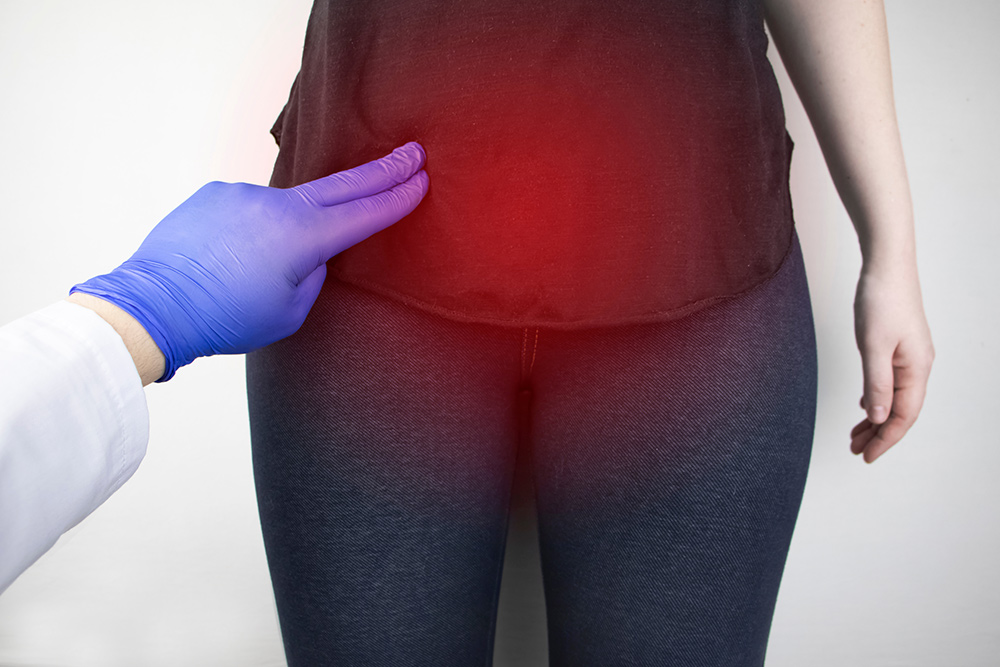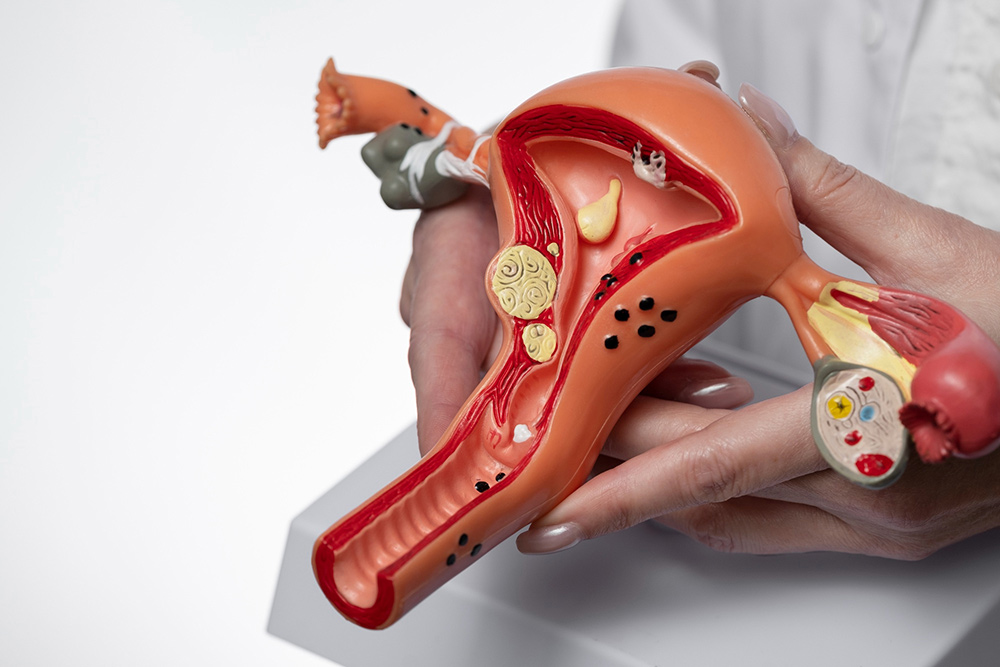Table of Contents
ToggleLast updated on April 21, 2025
Fibroids in women are a common condition that can range from symptomless to significantly life-disrupting. These non-cancerous growths in the uterus can lead to heavy bleeding, pelvic pain, bloating, and even impact fertility or pregnancy.
If you’re wondering what happens when a woman has fibroids, this guide from Vein Doctors Sydney will walk you through everything you need to know—from uterine fibroids symptoms to diagnosis and treatment options.
What Are Fibroids?
Uterine fibroids (also known as leiomyomas) are non-cancerous tumours that grow in or around the uterus. These are made of muscle and fibrous tissue and can vary in size and number. While many women have fibroids at some point in their lives, not all experience symptoms.
You may wonder, what do fibroids look like? Typically, fibroids appear as firm, rubbery masses that can be round or irregularly shaped. They may grow as a single lump or in clusters and can range in size from a pea to a grapefruit.
What Causes Fibroids?
The exact causes of fibroids remain unclear, but several factors are known to play a role:
- Hormonal influence on fibroids, especially oestrogen and progesterone
- Genetics, including family history of fibroids
- Obesity
- Early onset of menstruation
- Dietary factors and lifestyle choices
These factors can lead to the development and growth of fibroids, particularly during a woman’s reproductive years.
Types of Fibroids
Understanding the types of fibroids is essential, as location often determines the symptoms and treatment approach:
- Intramural fibroids – grow within the muscular wall of the uterus
- Subserosal fibroids – extend outside the uterus and can press on surrounding organs
- Submucosal fibroids – develop beneath the uterine lining, often causing heavy bleeding
- Pedunculated fibroids – grow on stalks inside or outside the uterus and can twist, causing pain

Some common uterine fibroids symptoms include pelvic pain, abdominal bloating and heavy or prolonged menstrual bleeding.
Symptoms of Fibroids
Fibroids symptoms can vary widely between individuals. Some women have no symptoms at all, while others may experience significant discomfort. If you’ve asked, “Do fibroids cause pain?” or “Can fibroids cause back pain?” the answer is yes—especially if they are large or pressing on nearby organs.
Common uterine fibroids symptoms include:
- Heavy or prolonged menstrual bleeding
- Pelvic pain or pressure
- Abdominal bloating
- Frequent urination or difficulty emptying the bladder
- Constipation
- Painful intercourse
- Lower back pain
Fibroids and Pregnancy
There is a strong link between fibroids and pregnancy. Although many women with fibroids carry healthy pregnancies, complications can occur. Fibroids in pregnancy may increase the risk of:
- Miscarriage
- Preterm birth
- Placental abruption
- Labour complications
- Restricted fetal growth
If you’re wondering how to deal with fibroids during pregnancy, it’s important to have your condition monitored by a healthcare provider. While fibroids are often managed conservatively during pregnancy, some may require treatment after childbirth.
Diagnosis of Fibroids
Accurate diagnosis of fibroids is essential to guide treatment decisions. Your doctor may use:
- Pelvic exam
- Ultrasound imaging
- MRI scans (for complex or large fibroids)
- Hysteroscopy (for submucosal fibroids)
Early detection can prevent complications and help determine whether you need medical treatment or ongoing observation.

Some fibroid treatment options include uterine artery embolisation (UAE), medication, a myomectomy and a hysterectomy.
Fibroid Treatment Options
There are several effective ways to treat uterine fibroids, depending on your symptoms, age, and fertility goals.
Uterine Artery Embolisation (UAE)
UAE is a non-surgical, image-guided procedure ideal for women who want to preserve their uterus and avoid surgery.
A catheter is guided to the uterine arteries, where tiny embolic particles are injected to block blood flow to the fibroids, causing them to shrink and is a good option for symptomatic fibroids.
Medication
Hormonal treatments such as GnRH agonists or progestin-releasing IUDs can shrink fibroids and reduce symptoms like bleeding and pain. However, their effects are temporary and fibroids may return once the medication is stopped.
Myomectomy
This surgical option removes fibroids while leaving the uterus intact, making it ideal for women who want to maintain fertility. Myomectomy can be performed via laparoscopy, hysteroscopy, or open surgery.
Hysterectomy
For women with severe fibroid-related complications, a hysterectomy (removal of the uterus) may be recommended. This is a permanent solution and eliminates the chance of recurrence.
Why Choose Vein Doctors Sydney?
At Vein Doctors Sydney, we are committed to providing personalised and compassionate care for women with uterine fibroids. Our team understands the physical and emotional toll of living with fibroids and offers effective, evidence-based solutions to help you feel better.
We utilise advanced, minimally invasive procedures such as Uterine Artery Embolisation to treat fibroids with less downtime and greater comfort. From diagnosis to treatment, you’ll receive expert care in a supportive, relaxed environment.
How to Book an Appointment
For more information on our services or to schedule a consultation at our clinic, please contact us by either calling (02) 9023 9970, via our online form or by sending us an email.
Frequently Asked Questions
Can fibroids cause pain and pressure?
Yes, fibroids can cause significant pelvic pain, pressure, and discomfort, particularly when they are large or pressing against nearby organs like the bladder or rectum. Some women experience a persistent ache, while others report sharp or stabbing pain. These symptoms may worsen during menstruation or sexual activity.
Do fibroids affect fertility?
Uterine fibroids can impact fertility by altering the shape of the uterus, blocking fallopian tubes, or interfering with embryo implantation. They may also increase the risk of pregnancy complications, such as miscarriage or preterm labour. However, with proper treatment, many women with fibroids are still able to conceive and carry a healthy pregnancy.
What do fibroids look like?
Fibroids are firm, rubbery growths made of smooth muscle and fibrous tissue, and they can vary in size and shape. Some are as small as a seed, while others grow large enough to distort the shape of the uterus. Their appearance depends on the type of fibroid and where it is located in or on the uterus.
What is the best treatment for fibroids?
The ideal fibroid treatment option depends on your symptoms, size and type of fibroids, and reproductive goals. Options include Uterine Artery Embolisation (UAE), medication, myomectomy, and hysterectomy. A medical consultation can help determine the best solution tailored to your needs.
Can fibroids go away on their own?
In some cases, particularly after menopause, fibroids may shrink naturally due to declining hormone levels. However, during the reproductive years, fibroids typically remain stable or grow and may require treatment if symptoms develop. Regular monitoring is important to assess any changes over time.
Can fibroids cause bleeding or bloating?
Yes, heavy menstrual bleeding is one of the most common fibroids symptoms, and some women may also experience bleeding between periods. Additionally, large fibroids can lead to abdominal bloating or a feeling of fullness, often mistaken for weight gain or digestive issues. These symptoms can affect daily comfort and may warrant medical attention.
This information is not intended to be used for diagnosis or treatment. It is aimed at presenting a perspective only and is not a substitute for a prescription. Anyone experiencing a medical condition should consult their doctor.

